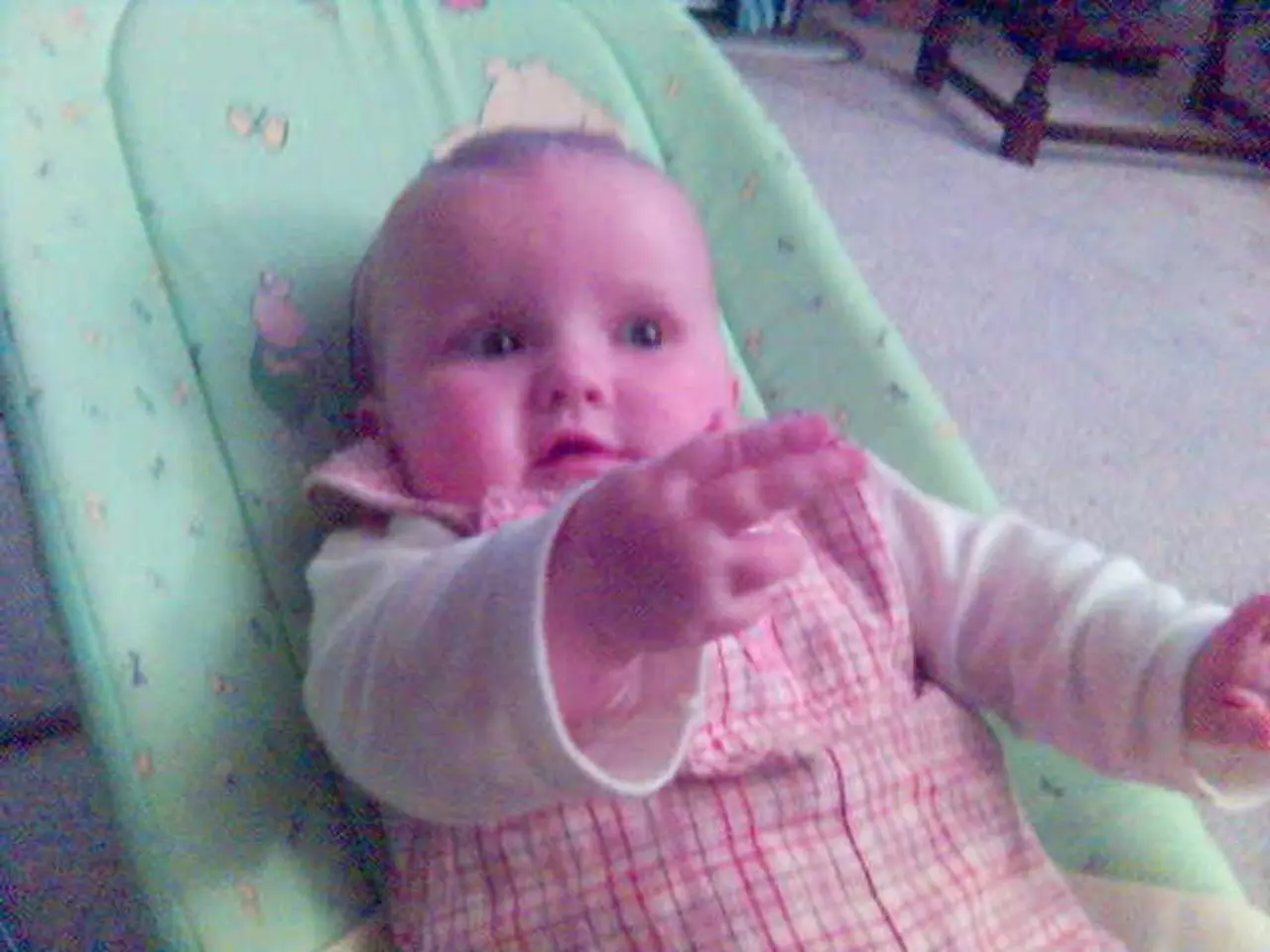New trial triumphantly saves 8 infants from life-threatening genetic disorders using innovative 'mitochondrial donation' method
In a significant breakthrough for families affected by mitochondrial diseases, the technique of mitochondrial donation, also known as "three-person IVF," has successfully resulted in the birth of eight healthy babies in the UK. This innovative method, primarily developed at Newcastle University, aims to prevent inherited mitochondrial diseases by blending the nuclear DNA of both parents with healthy mitochondria from a donor egg, thereby replacing defective mitochondria [1][2][4].
The birth of these babies, all showing no signs of mitochondrial disease, is a testament to the efficacy of this technique. The procedure, conducted under strict UK licensing regulations, has been primarily for women at high risk of transmitting mitochondrial disorders. Organizations such as Wellcome and NHS England have funded the research, with the findings published in The New England Journal of Medicine [2].
The potential impact of mitochondrial donation is substantial, offering hope to families affected by mitochondrial diseases, which are often incurable and can lead to severe health issues. By reducing the risk of transmitting pathogenic mitochondrial DNA variants, this technique provides an alternative for those facing genetic uncertainty [3][5].
However, experts emphasize the need for ongoing monitoring, as changes to mitochondrial DNA are heritable, meaning girls born via this method will pass the donor mitochondria to their own children [1]. Additionally, while promising, mitochondrial donation may not be suitable for all patients with mitochondrial DNA mutations, and its appropriateness depends on various factors [3].
The technique is not yet approved in countries like the U.S., but the successful outcomes in the UK set a precedent for potential future approvals elsewhere [5]. The approach used in the trial has been in development for many years and is only just making its way into human patients.
Research into mitochondrial donation will continue in the U.K. and Australia. In the trial, researchers used "pronuclear transfer," in which an egg is fertilized before having its nucleus removed and placed in a different, donated egg cell. Mitochondrial donation is an option for moms-to-be who carry a mix of high-load and low-load eggs and have the option to handpick eggs with low loads using preimplantation genetic testing (PGT) [2].
The scientists aim to refine the technique to reduce the risk of carry-over of maternal mitochondrial DNA and make the process more efficient. World-first legislation passed in the United Kingdom in 2015 enabled research with good-quality human embryos, which was necessary to show the technique could result in a viable pregnancy.
Patients with very high mutation loads in all their eggs, who aren't necessarily super sick themselves but would likely pass on concerning mutations, are the ones who could benefit from mitochondrial donation. All eight babies conceived through mitochondrial donation were born healthy and are meeting their developmental milestones. The children's health will continue to be monitored closely, with a focus on developmental assessment at 18 months and 5 years [1].
Robin Lovell-Badge, a principal group leader at the Francis Crick Institute, wrote that the group that underwent preimplantation genetic testing (PGT) strengthens the conclusion that pronuclear transfer is a valid method to reduce the risk of mitochondrial DNA disease [1]. This article is for informational purposes only and is not meant to offer medical advice. In the U.S., the Food and Drug Administration does not currently allow clinical research into mitochondrial replacement techniques in humans.
The successful birth of eight healthy babies through mitochondrial donation, a technique primarily developed for families at high risk of transmitting mitochondrial diseases, demonstrates the potential of this method in health and wellness, addressing medical-conditions such as mitochondrial diseases. This breakthrough study, conducted under UK licensing regulations and funded by organizations like Wellcome and NHS England, has significant implications for the science community, offering hope for future research into mitochondrial-related health issues.




